GLOW: Looking back at the glorious second season
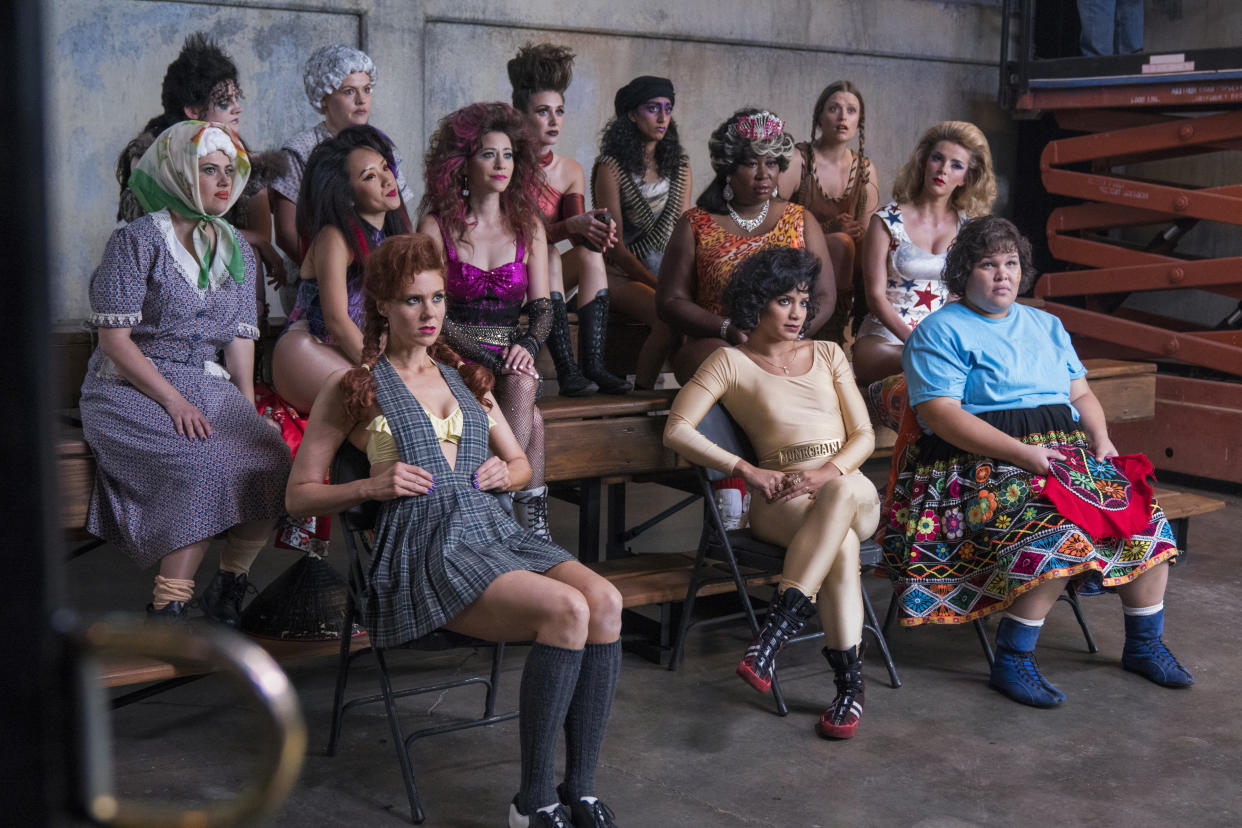
The year may only be a little over halfway through but we’ve already seen plenty of strong contenders for the title of best Netflix Original Series of the year. One of the most understated offerings which could arguably stake a claim to this prize however is the excellent second season of GLOW.
The wrestling comedy-drama may not be as powerful as docuseries like Flint Town, as intense as thrillers like Safe or as flashy as big budget blockbusters like Lost in Space, but what it does offer is an utterly engrossing, heart-warming and endearing slice of escapist feel-good TV.
GLOW’s second season skillfully built on the foundations of its predecessor and gave us a series that was both funnier and harder hitting than ever before. It’s sense of nostalgic warmth was still firmly in place and with a tight ten-episode length, there was no filler in sight. It delivered poignancy and laughs in abundance while also providing a timely comment on the experiences of women in male-dominated industries.
*MINOR SPOILERS FOR GLOW SEASON 2 AHEAD*
Ruth and Debbie
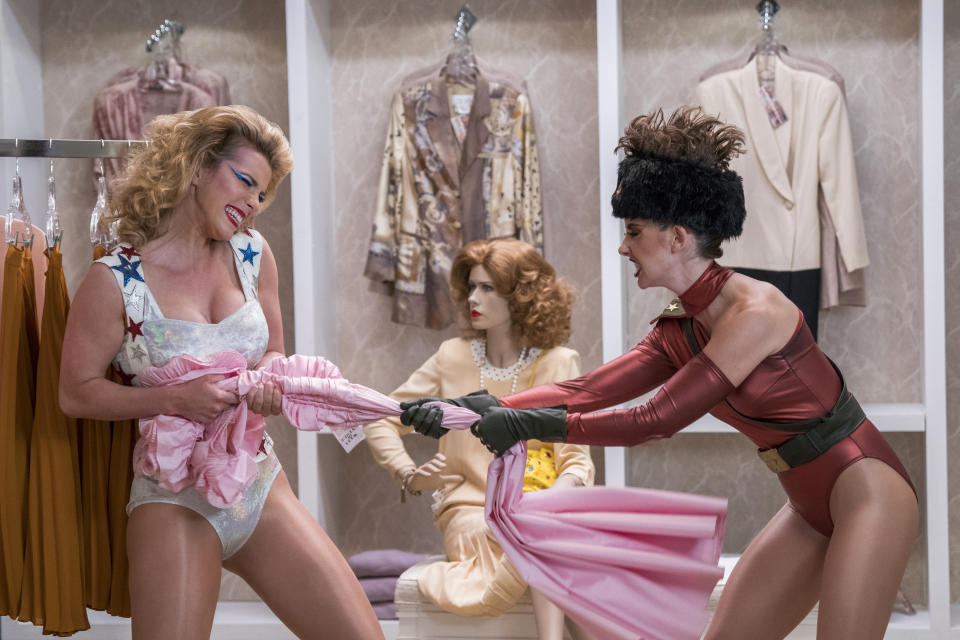
The central thread of GLOW’s first season was the uneasy detente between Alison Brie’s Ruth and Betty Gilpin’s Debbie and that complex relationship was developed further in season 2. Both women noticeably sought to put their own stamp on the show’s production. Ruth does so via her role as de-facto group leader and creative assistant to Sam, while Debbie made a major power play early on by insisting on also being credited as a producer.
The two former friends both want the show to succeed but their personal rivalry eventually begins to take its toll. Things again come to a head in the form of a tumultuous bust up in which old wounds are opened up and deep-rooted tensions bubble to the surface.
The clash between these two women is handled perfectly both in and out of the ring and it’s buoyed by terrific performances from the two leading ladies. Brie’s Ruth is a driven and flawed go-getter who just wants to make the best show possible, while Gilpin’s Debbie is doing her best to cope with her star no longer being in the ascendancy as well as an impending divorce.
Their’s is not a battle in which we are led to pick sides however. Both characters draw our support and you can’t help but root for the pair of them. Ultimately though, their rivalry brings out the best in both women and by the close of the season we can almost see them both coming out the other side.
Sam’s arc
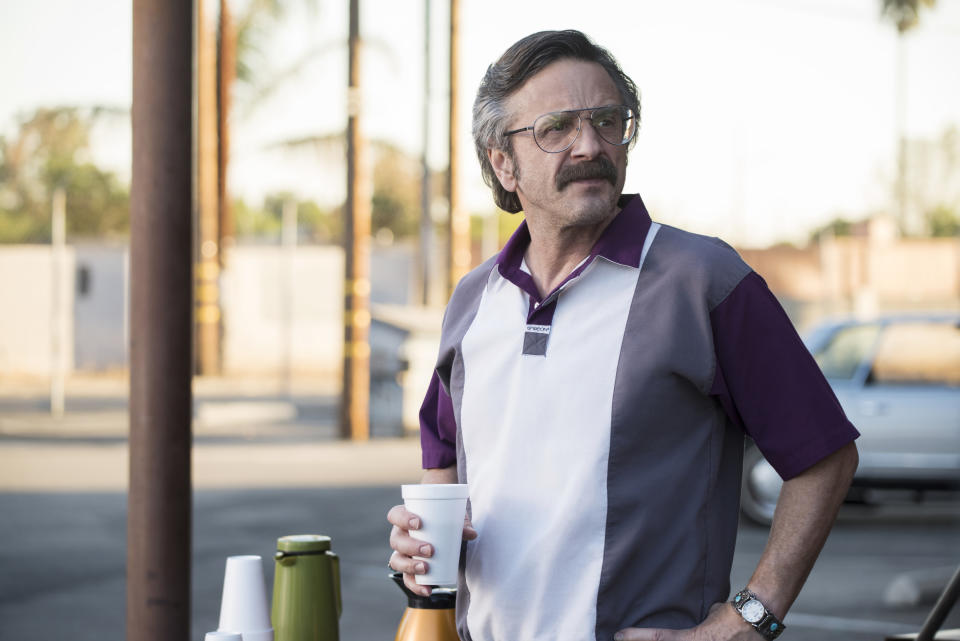
One of the characters who experienced the most pronounced arcs this time out was Marc Maron’s Sam. Sam starts out the season with the same rough edges and general insecurities he had in season one. However as the second season unfolds, his relationship with newfound daughter Justine brings out a new side to him.
We gradually see Sam’s paternal instincts kicking in and his compassionate nature winning out over his more self-destructive traits. He eventually begins to embrace a degree of responsibility in his day-to-day life and by the season’s close he even briefly appears to be an unexpected voice of reason.
The show does make a slight misstep with regards an ill-advised romantic twist towards the season’s close, but that aside, Sam’s journey from crude bully to lovable curmudgeon is a joy to watch.
Wrestling
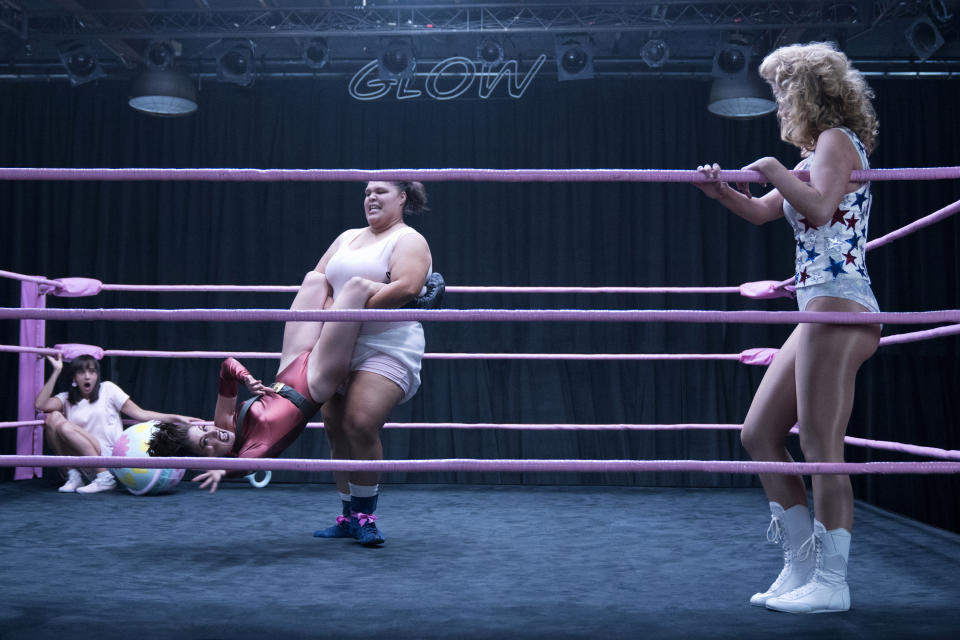
There was also a marked increase in the volume of actual wrestling on display this season. The show once again managed to strike a great balance and show both sides to the sporting spectacle. On one hand it clearly shows the athleticism, skill and training involved, but it also doesn’t play down the inherent silliness and campiness of the endeavour.
What also came to the fore however was the racism and sexism that was sadly still prevalent in the 80s wrestling product. Characters like Welfare Queen and The Mad Bomber are of course prime examples of this. Where GLOW excels however is in giving us a peek behind the curtain at the women portraying these characters and offering us an insight into how uncomfortable the roles made them feel.
Sexism and racism
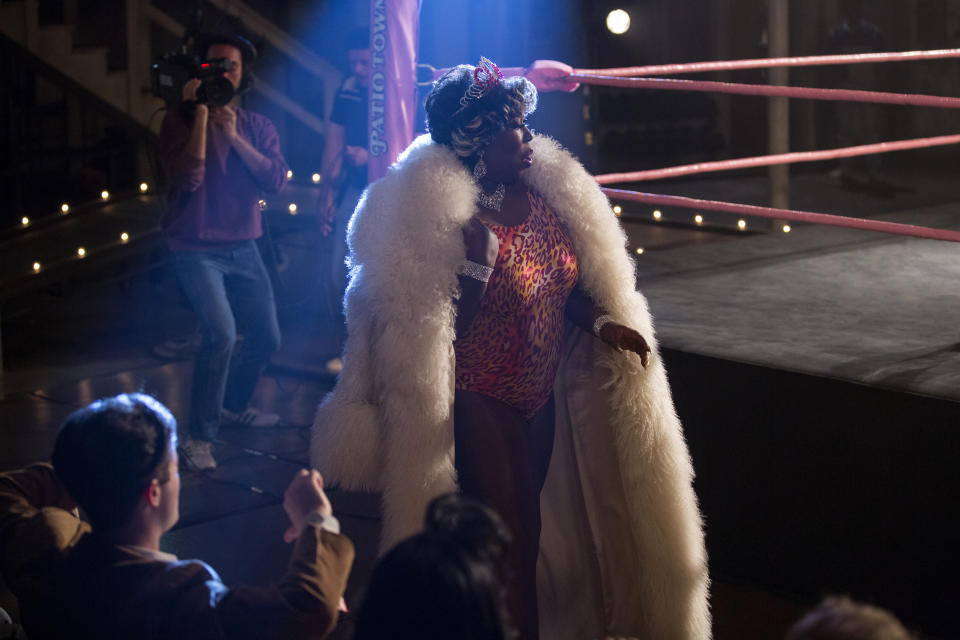
Issues of sexism and racism were a recurring theme on this season of the show and once again they were handled with a deft touch. The show has always been about solidarity and emphasising women’s struggles in a male-dominated world, but extra elements were added in this time out which hammered the point home extremely effectively.
A key example of this came when the “Me-Too” era was channeled to great effect during the uncomfortable scene involving Ruth and a sordid network executive. This sequence set in the seedy exec’s hotel room was difficult to watch in some regards but also still frighteningly relevant.
Likewise, the pressures put on women who try to balance motherhood and their career is also delicately covered. In one of the season’s stand out episodes, we see the difficulties both Debbie and Tamme face in this regard and witness how, despite their vastly different backgrounds, these experiences bond the pair together.
A winning blend
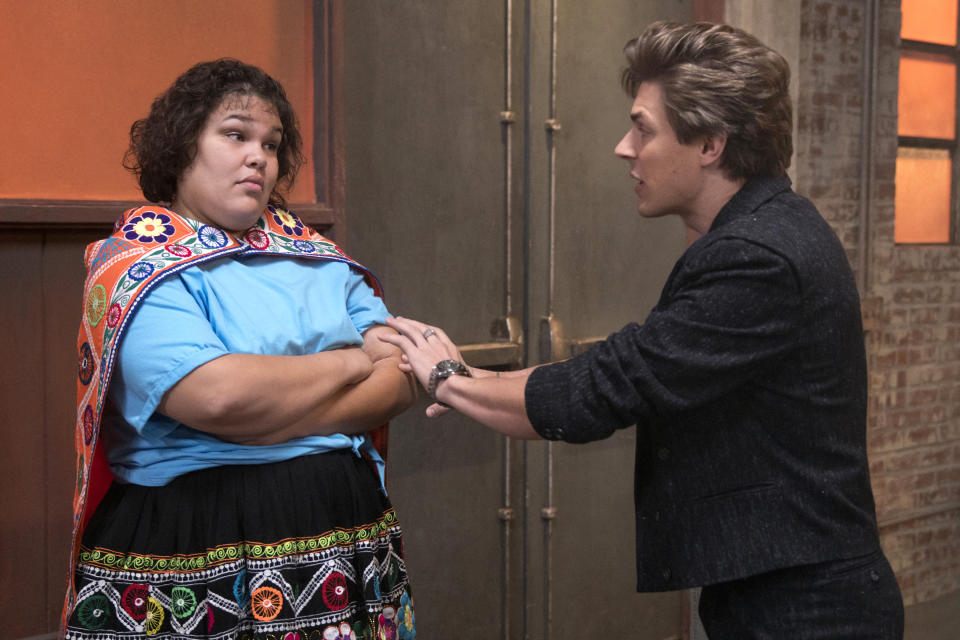
Mixing together comedy and drama is one of GLOW’s great strengths. A lot of other shows tend to be able to ace one and not the other, but GLOW manages to comfortably flit between both camps.
The comic timing of its cast and the inherently silly situation their characters are caught up in make for plenty of jokes, while their complex personal lives and the societal pressures they experience also makes for gripping drama. The extra insight into the lives of characters like Tamme and Bash this time out gives added poignancy to their storylines and makes their arcs all the more powerful.
As season 2 came to a memorable close, the show’s underdog spirit and sense of positivity remained firmly intact, even if the ladies now face a daunting new challenge. A potential third outing for the GLOW team has yet to be confirmed by Netflix, but given the unanimous acclaim this season has received, it’s surly only a matter of time.
Read More:
The 30 best TV moments of 2017
Wrestlers, frontier-women and a pint-sized genius: The best new TV shows of 2017
Disenchantment: Netflix’s next big animated comedy hit?

 Yahoo Movies
Yahoo Movies 
